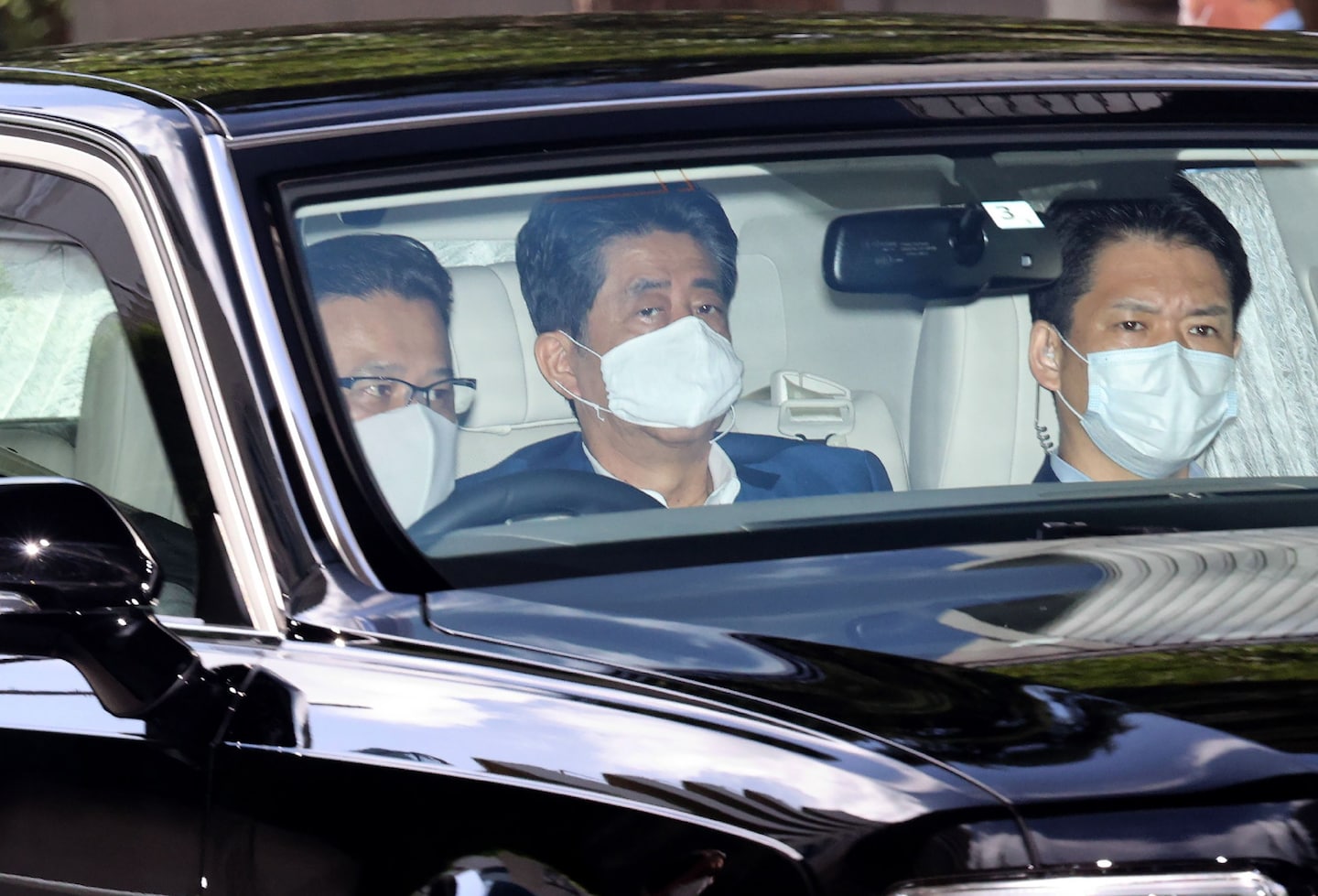Japan’s Shinzo Abe visits the hospital again as health concerns intensify

“Today, I listened to the results of the exams in detail and took some additional exams,” Abe told reporters. “I will pay utmost attention to my health and will do my best going forward.”
The hospital visit in itself is hardly a reason to write the leader’s political obituary, as he approaches the final year of his tenure, due to end in September 2021.
But persistent reports have suggested the 65-year-old Abe is exhausted after a stressful few months coping with the coronavirus pandemic and rising public unhappiness with his leadership. Others have suggested he could be suffering from a return of the ulcerative colitis that cut short his previous term in office in 2007.
Abe has conducted official duties this month, attending ceremonies marking the 75th anniversaries of the atomic bombing of Hiroshima and Nagasaki as well as Japan’s 1945 surrender, but he has held few news conferences despite a surge in coronavirus infections and a plunging economy.
Officially, the government says there is no reason for concern.
Abe had said last week’s tests were carried out “to make absolutely sure that my health is in good shape,” while Health Minister Katsunobu Kato said that he was “not at all” worried about the leader’s condition. Education Minister Koichi Hagiuda said Abe might be “feeling tired” due to his chronic health condition but was “all right.”
Abe has a routine medical checkup every six months, and last week’s tests were billed as a follow-up to his last visit in June.
But over the past few weeks, some of his closest aides have conceded Abe was suffering from fatigue due to his heavy workload.
“He has a strong sense of responsibility and feels it’s wrong to take a break,” Akira Amari, chairman of the ruling Liberal Democratic Party’s tax panel, told a TV program this month. “We need to force him to get rest, even just for a few days.”
Deputy Prime Minister Taro Aso said it was not surprising for Abe to be in “rough shape” after working for 147 consecutive days through the middle of June.
Abe’s popularity has slumped to near its lowest levels since he took office for his second term as prime minister in 2012, amid widespread unhappiness over his handling of the coronavirus pandemic.
Tobias Harris, an expert on Japanese politics at Teneo Intelligence, said that even if Abe recovers, he will be “little more than a caretaker” for the remainder of his term.
“The question is, if he is indeed ailing, how long he will be able to hold on,” Harris wrote in an email.
“He will not be able to dodge questions from the opposition, the press, or his own party forever,” he said. “At some point, he will have to come clean and explain why, if he intends to stay, he is in fact still fit to perform the duties of his office during an especially trying time for Japan.”
But he had been reluctant to use his political capital to grapple with many of the biggest challenges facing Japan, including its shrinking and aging population, its risk-averse corporations and the threat of climate change.






